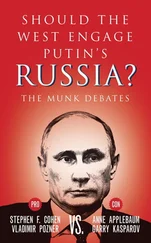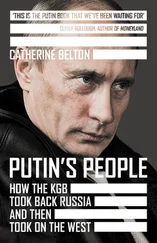In Putin’s view, Russia has both external and internal enemies. The external seek to weaken Russia’s society and economy through sanctions, low oil prices, information wars, and pressure on possible weak points like Kaliningrad. The internal enemies—political rivals, opposition leaders, unhappy oligarchs—share a common goal with the external ones: the removal of Putin. It is even possible they will collude. After all, in 1917 Lenin was sent by Russia’s enemy Germany in a sealed train to Petrograd in the calculation that a revolutionary Lenin would not wish to continue Tsarist Russia’s imperialist war. All of these are the sort of moves Putin himself might make if he were on the other side of the chessboard—why shouldn’t he pay his opponent the compliment of considering him equally intelligent and devious?
Putin’s fears may seem extravagant, but when viewed against the backdrop of Russia’s history, many of them do not seem so extravagant at all.
PART TWO
BACKGROUND CHECK
…the time is right for fighting in the streets.
—THE ROLLING STONES
[40] The Rolling Stones, “Street Fighting Man,” Beggars Banquet .
2
THE EDUCATION OF V. V. PUTIN
All decent people get their start in intelligence. I did too.
—HENRY KISSINGER TO PUTIN IN CONVERSATION, EARLY NINETIES
[41] Vladimir Putin, First Person (New York: Public Affairs, 2000), p. 81.
Any portrait of Putin must necessarily be streaky, ambiguous, elusive. His KGB training made him duplicitous, poker-faced, and his years in power have airbrushed his past. Besides, Russian psychology and behavior always tend to baffle Westerners. America’s experts know Russia, they just don’t know Russians. This is what Defense Secretary Robert M. Gates was getting at when, bemoaning deteriorating U.S.-Russia relations, he said of himself and Condoleezza Rice: “For the first time both the United States secretary of state and secretary of defense have doctorates in Russian studies. A fat lot of good that’s done us.” [42] Robert Gates, Quotation of the Day, New York Times , September 20, 2008.
Putin’s time in the KGB lends him a sinister charisma that also obscures his true face. The way he views the KGB and the way it is seen by outsiders is one of the true impediments to penetrating his psychology and predicting his behavior. For Putin, membership in the KGB is a source of pride and identity; he’s gone so far as to say that there is no such thing as ex-KGB. For him and many in the KGB, the organization was not evil but heroic. It helped win the revolution, beat the Nazis, and steal U.S. atomic secrets, thus preserving a balance of power in the world. Many KGB veterans, though they will in passing acknowledge their organization’s complicity in Stalin’s crimes and the oppression that continued after his death, are also acutely aware of themselves as victims and martyrs. There was no more dangerous job in Stalin’s USSR than head of the KGB, and when a KGB leader fell, immediate purges of his confederates would decimate the ranks. The principal intelligence school that Putin attended during his training had been established by Stalin’s personal order in 1938 to replace the agents killed in Stalin’s own purges.
In KGB eyes the blame for the crimes committed against innocent civilians and against “innocent” KGB personnel lay with the party. The KGB was only the party’s sword and shield—it did what it was told.
So when someone like John McCain says he looks into Putin’s eyes and sees “KGB” he means thug and oppressor, but when Vladimir Putin says the same word, it has associations of victor, victim, and, at worst, inadvertent villain. This is not the best basis for communication and also violates the cardinal principle: Know thy enemy.
Our image of Russia lacks nuance and perversity. A Westerner might be able to understand why Russians would remain faithful to the original image of the KGB man as bold and valiant. It would, however, be considerably more difficult to understand the nostalgia some former prisoners of the Gulag for their time there. In the Gulag everything was more vivid and real. There was no ambiguity—friendship was friendship, betrayal betrayal. Speaking of some music he had by chance overheard and whose beauty sustained him for days, one Zek (prisoner) said to me: “You hold things dearer in there. Hearing music in there in not like hearing music out here. I would not have missed it for the world.” [43] Richard Lourie, Russia Speaks (New York: HarperCollins, 1991), p. 189.
But Putin eludes even Russians. A politician who worked closely with Putin in St. Petersburg in the 1990s says: “When he became President I threw open my photo album to see us together—I knew he’d be there next to me at one of so many events we were at together. But he wasn’t in a single one. He’d slipped out of every frame. I sometimes wonder if he even has a reflection in the mirror.” [44] Ben Judah, Fragile Empire (New Haven, Conn.: Yale University Press, 2013), p. 20.
* * *
Vladimir Vladimirovich Putin was born in Leningrad in 1952. The time and the place are both important. It was only seven years since the end of World War II in a Soviet Union still ruled by Joseph Stalin, with whom Putin’s family had a strong personal connection—Putin’s grandfather cooked for Stalin.
Leningrad and Moscow had very different fates during the war. Moscow withstood Hitler’s blitzkrieg attack of 1941, though it was a close call. German bombs hit Red Square. On the road into Moscow from Sheremetyevo International Airport there is a monument of oversized tank traps, which mark the point of the closest German advance. The Nazis were in Queens.
Moscow displayed heroic resistance, Leningrad heroic endurance. The latter city was besieged by the Nazi army for some nine hundred days. A million people died from hunger, cold, and the unrelenting shelling of the city. At the apex, ten thousand were dying a day. In the winter, dynamite was needed to blast the frozen ground to make mass graves. Putin tells the story of how his mother almost became an inadvertent victim: “Once my mother fainted from hunger. People thought she had died, and they laid her out with the corpses. Luckily, Mama woke up in time and started moaning.” [45] Putin, First Person , p. 6.
The most terrifying sight in the world in the Leningrad of those days was that of a well-fed man—it meant he was a cannibal and out hunting for more.
Those were the stories Putin heard at the kitchen table when the grown-ups drank tea. Even Chancellor Angela Merkel, who grew up in East Germany, has nothing in her biography that comes close.
The year of Putin’s birth was the last year of Stalin’s life and the time of his last purge. The anti-Semitic Doctors’ Plot accused Jewish doctors in Kremlin hospitals of murdering high Soviet officials. It was always dangerous to be too close to the Kremlin or Stalin and his inner circle, though that didn’t affect Putin’s grandfather, who cooked for both Lenin and Stalin. He must have had a very high clearance if he was not actually an official member of the security apparatus. Putin’s father survived hazardous duty performing sabotage behind Nazi lines, fighting in a demolitions battalion of the NKVD, precursor of the KGB. He was seriously wounded—they never got all the shrapnel out of him and he limped for the rest of his life. The only casualty in the immediate family was a baby who died of diphtheria during the Siege, another having died shortly after birth before the war. Putin was thus an only child, “the sun, moon and stars” [46] Ibid., p. 61.
to his mother, who had him baptized on the sly from her party-member husband. Putin still wears that baptismal cross. There may also be a special sense of significance or destiny instilled in only children whose predecessor siblings all died, opening the way for them, as was the case for Stalin.
Читать дальше
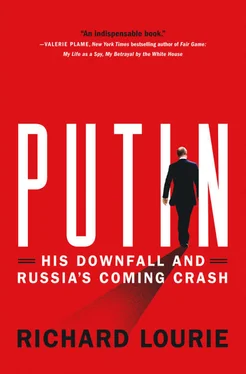

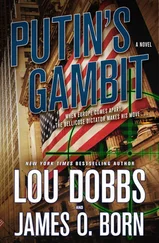
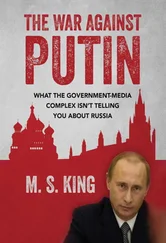
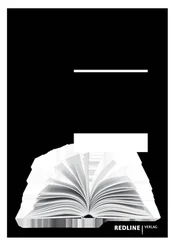
![Stephan Orth - Behind Putin's Curtain - Friendships and Misadventures Inside Russia [aka Couchsurfing in Russia]](/books/415210/stephan-orth-behind-putin-s-curtain-friendships-a-thumb.webp)

